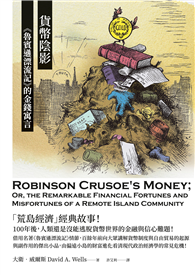Since the year 2000, millions of hectares of land in the Global South have been acquired by foreign investors for large-scale agricultural projects, displacing and disrupting rural communities. Women are especially disadvantaged by the global land grab: they are less likely to inherit, control, or make decisions over land, but often need land to support themselves, their families, and their communities. While international organizations have developed global guidelines to improve land governance, tensions still run high as the current policies fall short. Gender and the Global Land Grab introduces a feminist conceptual framework to analyze land governance policy around the world. Andrea Collins shows how gender norms, biases, and expectations shape land politics at different levels of governance. Drawing on examples from sub-Saharan Africa and with an in-depth case study of land politics in Tanzania, the book assesses guidelines developed by institutions such as the Food and Agriculture Organization of the United Nations and the World Bank to highlight essential considerations for developing and implementing gender-sensitive policy. Illustrating how gender shapes resource policy across all levels of political activity, Gender and the Global Land Grab provides valuable tools for transforming global policymaking.
| FindBook |
有 1 項符合
Gender and the Global Land Grab: A Feminist Global Governance Approach的圖書 |
 |
Gender and the Global Land Grab: A Feminist Global Governance Approach 作者:Collins 出版社:McGill-Queen’s University Press 出版日期:2024-06-15 語言:英文 規格:平裝 / 224頁 / 普通級/ 初版 |
| 圖書館借閱 |
| 國家圖書館 | 全國圖書書目資訊網 | 國立公共資訊圖書館 | 電子書服務平台 | MetaCat 跨館整合查詢 |
| 臺北市立圖書館 | 新北市立圖書館 | 基隆市公共圖書館 | 桃園市立圖書館 | 新竹縣公共圖書館 |
| 苗栗縣立圖書館 | 臺中市立圖書館 | 彰化縣公共圖書館 | 南投縣文化局 | 雲林縣公共圖書館 |
| 嘉義縣圖書館 | 臺南市立圖書館 | 高雄市立圖書館 | 屏東縣公共圖書館 | 宜蘭縣公共圖書館 |
| 花蓮縣文化局 | 臺東縣文化處 |
|
|
圖書介紹 - 資料來源:博客來 評分:
圖書名稱:Gender and the Global Land Grab: A Feminist Global Governance Approach
|











